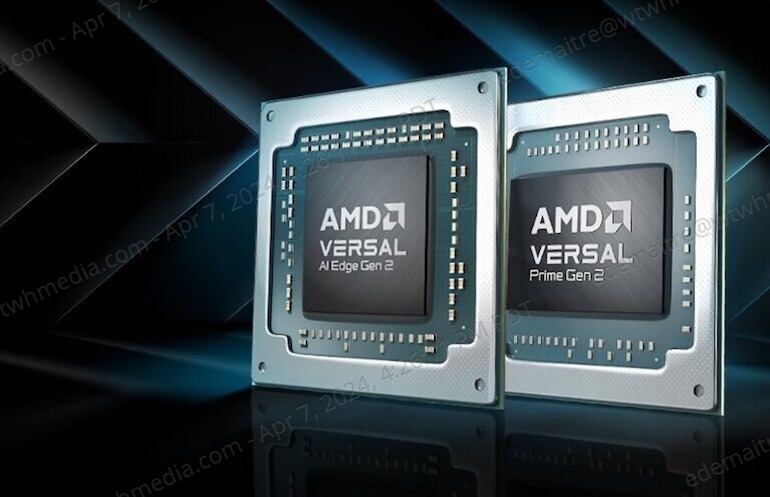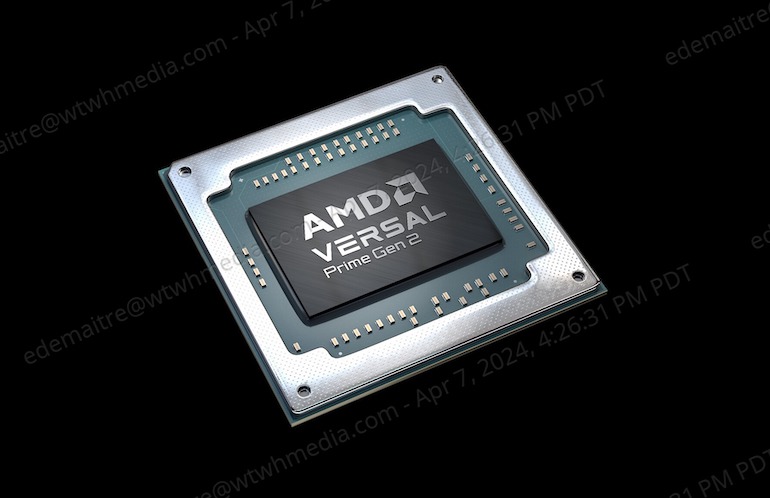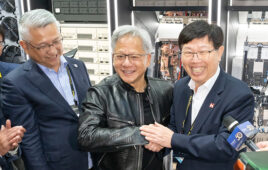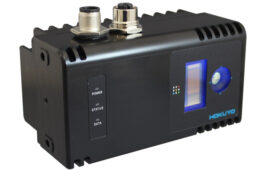|
Listen to this article
|

The AMD Versal AI Edge and Prime Gen 2 are next-gen SoCs. Source: Advanced Micro Devices
To enable more artificial intelligence on edge devices such as robots, hardware vendors are adding to their processor portfolios. Advanced Micro Devices Inc. today announced the expansion of its adaptive system on chip, or SoC, line with the new AMD Versal AI Edge Series Gen 2 and Versal Prime Series Gen 2.
“The demand for AI-enabled embedded applications is exploding and driving the need for solutions that bring together multiple compute engines on a single chip for the most efficient end-to-end acceleration within the power and area constraints of embedded systems,” stated Salil Raje, senior vice president and general of the Adaptive and Embedded Computing Group at AMD.
“Based on over 40 years of adaptive computing leadership in high-security, high-reliability, long-lifecycle, and safety-critical applications, these latest-generation Versal devices offer high compute efficiency and performance on a single architecture that scales from the low end to high end,” he added.
For more than 50 years, AMD said it has been a leading innovator in high-performance computing (HPC), graphics, and visualization technologies. The Santa Clara, Calif.-based company noted that billions of people, Fortune 500 businesses, and scientific research institutions worldwide rely on its technology daily.
Versal Gen 2 addresses three phases of accelerated AI
Advanced Micro Devices said the Gen 2 systems put preprocessing, AI inference, and postprocessing on a single device to deliver accelerated AI. This provides the optimal mix for accelerated AI meet the complex processing needs of real-world embedded systems, it asserted.
- Preprocessing: The new systems include FPGA (field-programmable gate array) logic fabric for real-time preprocessing; flexible connections to a wide range of sensors; and implementation of high-throughput, low-latency data-processing pipelines.
- AI inference: AMD said it provides an array of vector processes in the form of next-generation AI Engines for efficient inference.
- Postprocessing: Arm CPU cores provide the power needed for complex decision-making and control for safety-critical applications, said AMD.
“This single-chip intelligence can eliminate the need to build multi-chip processing solutions, resulting in smaller, more efficient embedded AI systems with the potential for shorter time to market,” the company said.
AMD builds to maximize power and compute
AMD said its latest systems offer up to 10x more scalar compute compared with the first generation, so the devices can more efficiently handle sensor processing and complex scalar workloads. The Versal Prime Gen 2 devices include new hard IP for high-throughput video processing, including up to 8K multi-channel worflows.
This makes the scalable portfolio suitable for applications such as ultra-high-definition (UHD) video streaming and recording, industrial PCs, and flight computers, according to the company.
In addition, the new SoCs include new AI Engines that AMD claimed will deliver three times the TOPS (trillions of operations per second) per watt than the first-generation Versal AI Edge Series devices.
“Balancing performance, power, [and] area, together with advanced functional safety and security, Versal Series Gen 2 devices deliver new capabilities and features,” said AMD. It added that they “enable the design of high-performance, edge-optimized products for the automotive, aerospace and defense, industrial, vision, healthcare, broadcast, and pro AV [autonomous vehicle] markets.”
“Single-chip intelligence for embedded systems will enable pervasive AI, including robotics … smart city, cloud and AI, and the digital home,” said Manuel Uhm, director for Versal marketing at AMD, in a press briefing. “All will need to be accelerated.”

The Versal Prime Gen 2 is designed for high-throughput applications such as video processing. Source: AMD
Versal powers Subaru’s ADAS vision system
Subaru Corp. is using AMD’s adaptive SoC technology in current vehicles equipped with its EyeSight advanced driver-assistance system (ADAS). EyeSight is integrated into certain car models to enable advanced safety features including adaptive cruise control, lane-keep assist, and pre-collision braking.
“Subaru has selected Versal AI Edge Series Gen 2 to deliver the next generation of automotive AI performance and safety for future EyeSight-equipped vehicles,” said Satoshi Katahira. He is general manager of the Advanced Integration System Department and ADAS Development Department, Engineering Division, at Subaru.
“Versal AI Edge Gen 2 devices are designed to provide the AI inference performance, ultra-low latency, and functional safety capabilities required to put cutting-edge AI-based safety features in the hands of drivers,” he added.
Vivado and Vitis part of developer toolkits
AMD said its Vivado Design Suite tools and libraries can help boost productivity and streamline hardware design cycles, offering fast compile times and enhanced-quality results. The company said the Vitis Unified Software Platform “enables embedded software, signal processing, and AI design development at users’ preferred levels of abstraction, with no FPGA experience needed.”
Earlier this year, AMD released the Embedded+ architecture for accelerated edge AI, as well as the Spartan UltraScale+ FPGA family for edge processing.
Early-access documentation for Versal Series Gen 2 is now available, along with first-generation Versal evaluation kits and design tools. AMD said it expects Gen 2 silicon samples to be available in the first half of 2025, followed by evaluation kits and system-on-modules samples in mid-2025, and production silicon in late 2025.







Tell Us What You Think!